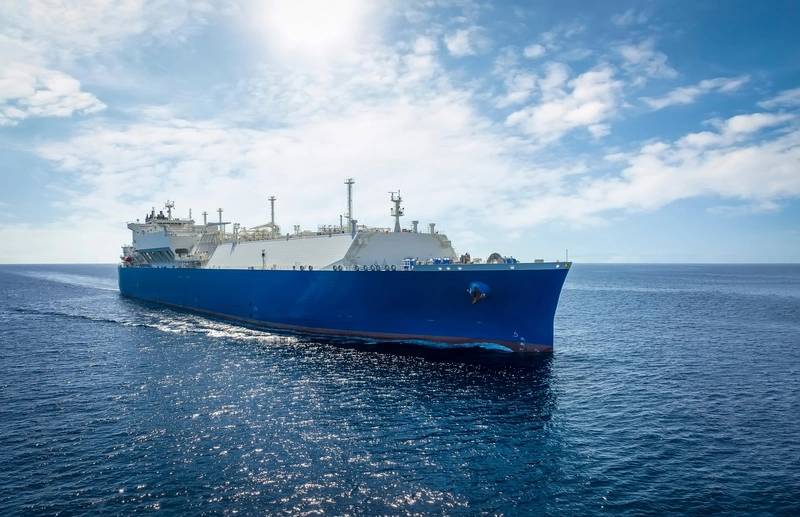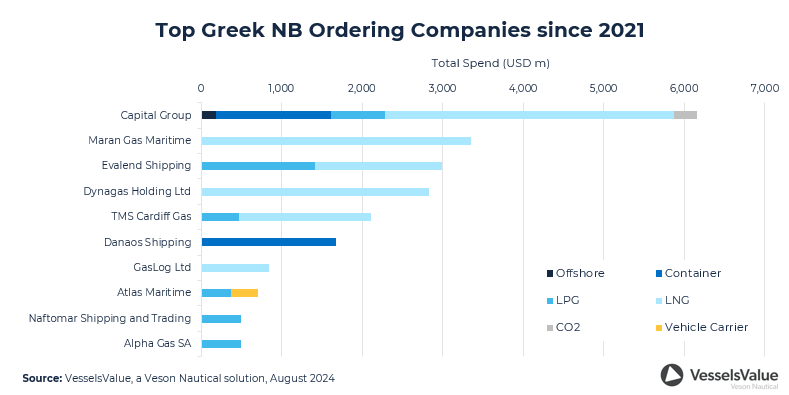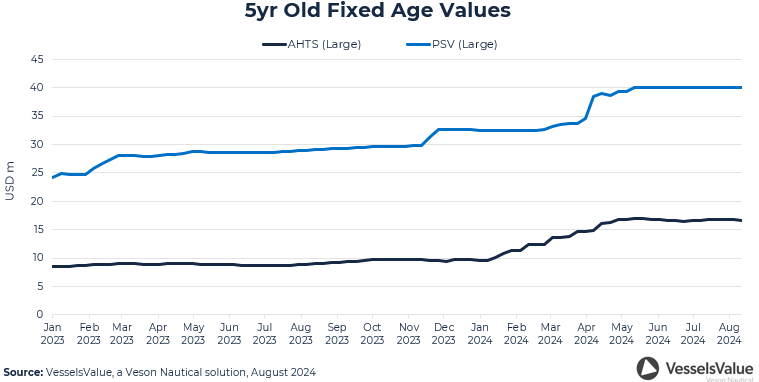Greek Shipowners Betting Billions on Gas
Greek shipowners have spent an unprecedented $18 billion on newbuild gas vessels since 2021 as companies diversify their portfolios away from traditional tanker, bulker and container asset classes according to new research by Veson Nautical's data intelligence arm VesselsValue.
Approximately $13.8 billion of the figure has been spent on 59 liquefied natural gas (LNG) vessels, and approximately $4 billionn on 41 liquid petroleum gas (LPG) vessels, according to the new report, ‘Greek Speculative S&P Investments’. This compares to Greek shipowners spending about $12.2 billion on 167 tanker vessels, $4.1 billion on 109 bulkers and $3.1 billion on 39 containerships.


“In a decade defined by volatile markets and seismic shifts in shipping dynamics, Greek shipowners have taken bold investment stances that could shape the future of global trade,” said Dan Nash, Associate Director of Valuation & Analytics at VesselsValue. “Greek shipowners are clearly planning for future increases in gas and LNG supply in the global energy mix with these speculative investments.”
Capital leading the way
The report names the Piraeus-based Capital Ship Management (Capital) the most speculative with 15 large LNG vessels, two very large ammonia carriers (VLAC), eight medium gas carriers (MGC), and four carbon dioxide (CO2) vessels for a combined spend of roughly $4.7 billion. Capital is followed by the Athens-based Maran Gas Maritime (Maran), the LNG ship management company of the Angelicoussis Shipping Group, with a total spend of about $3.3 billion that includes 15 large LNG carriers. The Athens-based Evalend Shipping is third, Spending about $3 billion on 12 very large gas carriers (VLGC), two MGCs, two VLACs and six large LNG vessels.

Offshore oil & gas market also attracting interest
The report adds that offshore values for five-year-old, large anchor handling tug supply (AHTS) vessels, which are used to anchor and secure oil and gas platforms have spiked by some 97% since 2021. Platform supply vessels (PSV) have spiked by 67%. Prices have been supported by a low orderbook of about 2%-3%.
The rise in values prompted Capital to pay $180 million for four PSV units to China’s Fujian Mawei Shipbuilding in June with repeat options. This was swiftly followed by two medium PSV orders (4,4700 from the same shipyard in September.
“Vessel prices in the offshore market have risen by a huge margin since 2021, but Capital are clearly anticipating a strong forward curve going forward,” Nash said.
Newbuild prices to remain high across all asset classes
The report also states that newbuilding prices across sectors have reached their highest level since the 2008 financial crisis with the most recent upward pressure commencing in 2021. The high ordering activity for container and LNG vessels in 2021/22 has exerted even more pressure on shipyard capacity and building periods. Due to the increase in orders, shipyards have held the upper hand in price negotiations and prices have climbed.
“Whilst we do not foresee a repeat of the ordering volumes from the pandemic years, we expect to see newbuilding prices for container vessels rising above the upward trendline of other sectors,” Nash said. “He adds that our expectations are for Container newbuilding prices to continue to rise in 2024 and into 2025 at a higher pace than that of the other sectors.”
He added that unless container vessel earnings continue to increase, we expect container ordering demand to slow and the total orderbook to slowly subside.
“If sustained over some time, a declining total orderbook will remove capacity pressure from shipyards which typically leads to lower newbuilding prices,” Nash said. “However, this decline will be gradual and is probably 12-24 months out in time, therefore vessel prices are expected to remain in historically high territory.”
